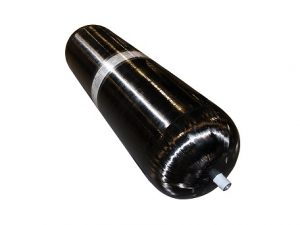By Wayne Powers, Alternative Fuels General Manager
Worthington Industries

Arguably the most important component of a compressed natural gas (CNG) fuel system is the fuel tank, which demands consistently reliable performance over many years of service. Depending on a fleet’s driving range requirements, along with the vehicle platform and other factors, multiple fuel tanks can be specified by a CNG system integrator, with variations for type, diameter and length. Keep in mind that CNG fuel tank specifications are very precise, because they are often specified for a given vehicle application. If there is an eventual need, an exact replacement is necessary, in order to seamlessly synch with system components.
Therefore, there is some risk involved for system integrators as they select a fuel tank supplier. The best way for integrators to mitigate that risk is to do their homework on the front end, starting with the following three questions:
- Does the CNG fuel tank supplier’s product range match my vehicle designs? This includes not only length, diameter and tank type, but also custom designs. Sometimes, a very specific tank is required based on available dimensions and the supplier’s design and manufacturing expertise.
- What is a supplier’s process for managing design changes? An integrator may start with a particular system design, but based on vehicle platform evolution, that design will change. Does a fuel tank supplier have demonstrated ability to be flexible over time, and in-house engineers that are experienced enough to adapt? Remember, if there is a design change, and a new fuel tank is required years later, that tank will have to be re-qualified.
- What type of support can be expected? Since CNG fuel tanks are meant to last up to 25 years, choice of a partner that can support that product over its usable lifespan is key. Support includes availability of parts, like O-rings and valves, along with direct-replacement tanks. But support also includes customer service and repairs. A fuel tank supplier is more valuable if it has representatives that can head into the field, diagnose a problem and fix it.
These three questions should be considered a starting point. Answers to these, and other questions, will provide system integrators important data on how a fuel tank supplier’s processes maximize system design and performance, which will help meet the needs of fleet operators, both today and well into the future.
Wayne Powers leads the strategic growth and day-to-day operations of Worthington Industries’ Alternative Fuels business.



